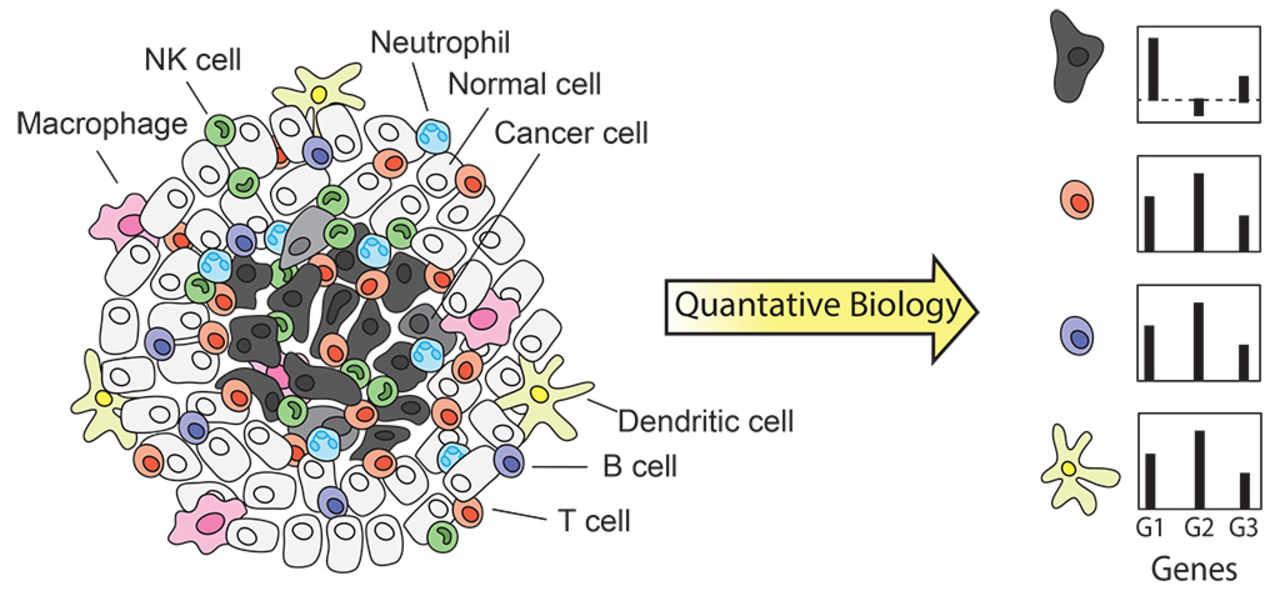Cancer is a major health challenge and is estimated to be responsible for more than 600,000 deaths in the US in 2019. New diagnosed cancer cases are estimated to be greater than 1,700,000. There are over 100 different types of cancers, each with their own unique characteristics and many having similar features such as mutation profiles. Studies have shown that cancer can be caused by both internal and external factors. For example, viral infection or exposure to UV radiation are external cancer inducer factors. However, internal factors such as inherited mutations within DNA repair enzymes or methylation-induced mutations can also be a source of tumor initiation and/or evolution. Some of these factors are associated with distinct mutation, expression, and immune signatures in tumor tissue biopsies. Deconvolution of these molecular and cellular signatures is not trivial, because many different cells in the tumor and its microenvironment are in dynamic interactions with each other. We are developing combined quantitative biology, single cell, and spatially resolved analysis techniques to quantify the contribution of each cell type and each molecular process and determine their roles in cancer evolution and survival outcomes.

